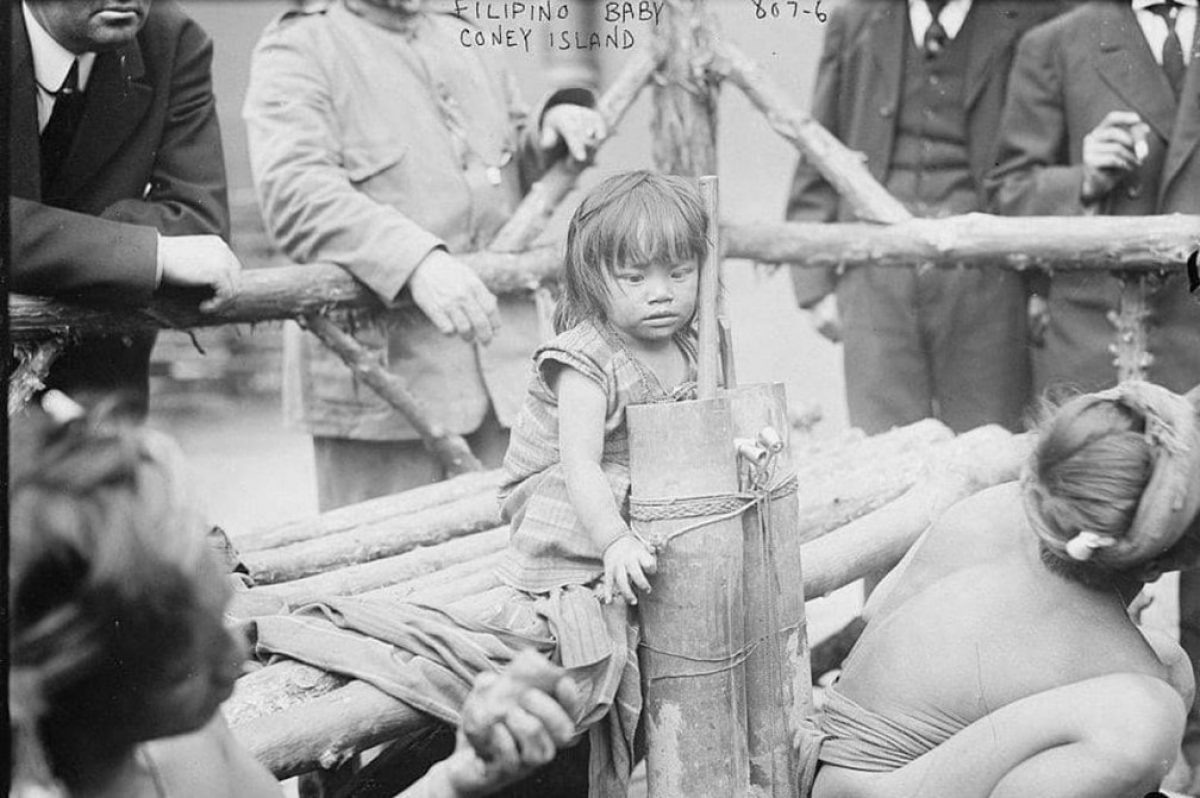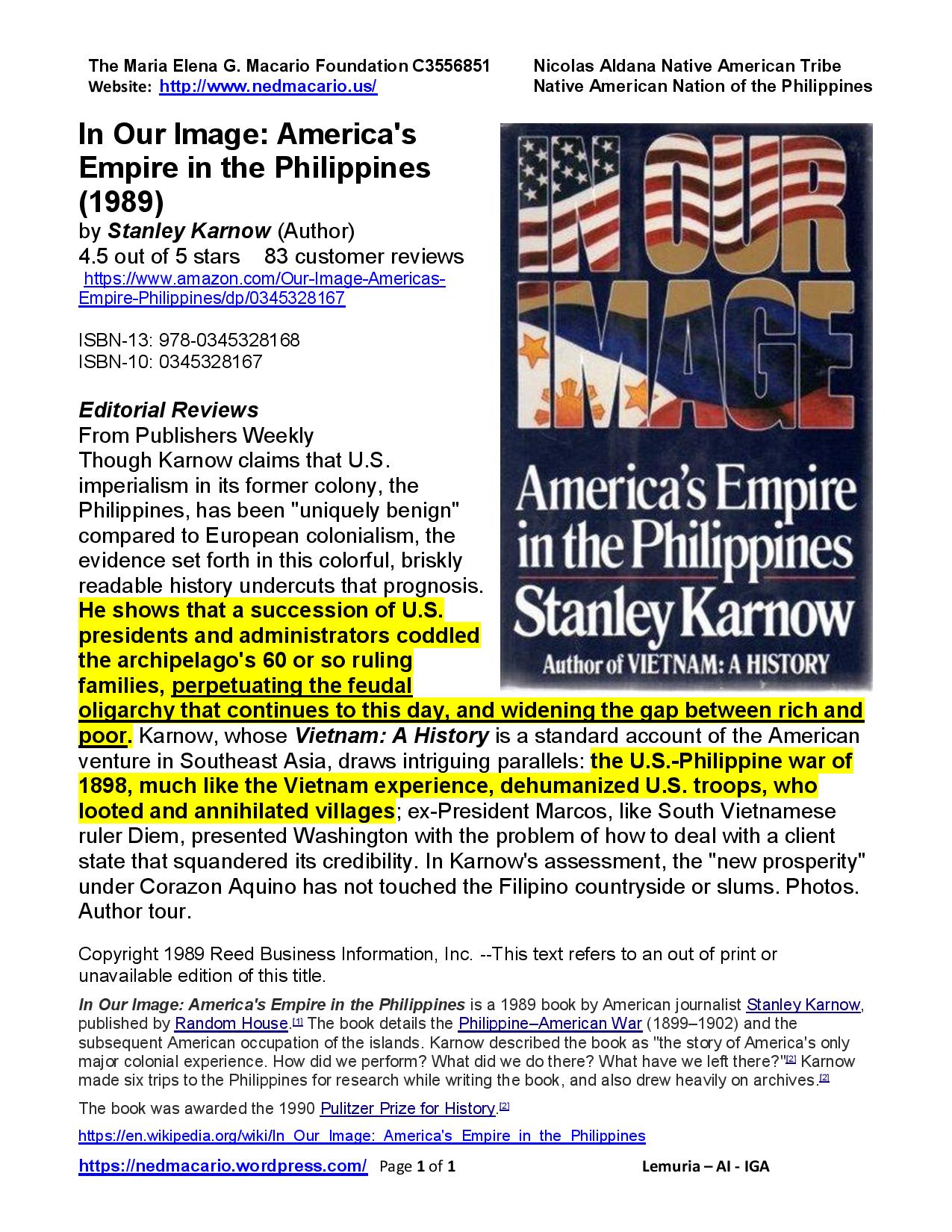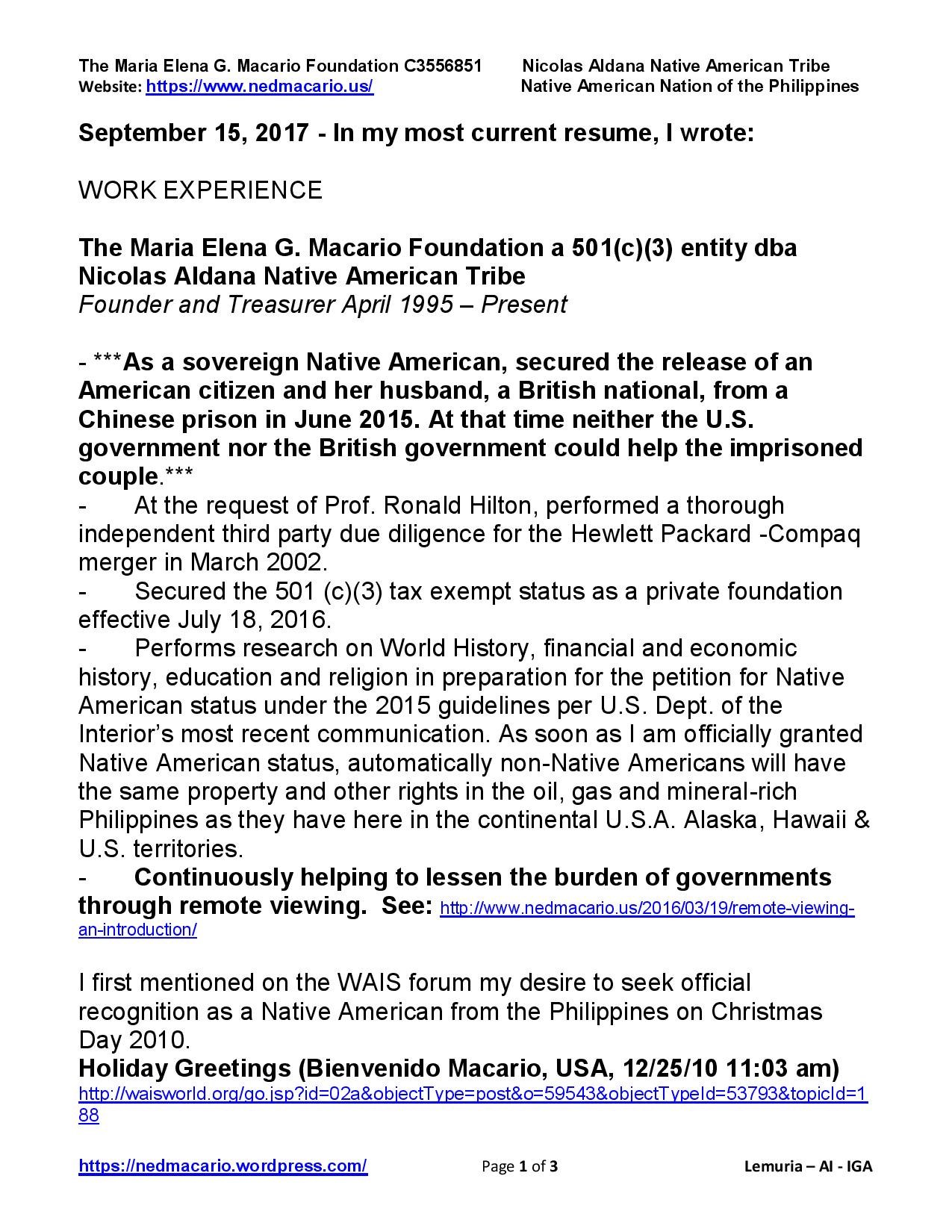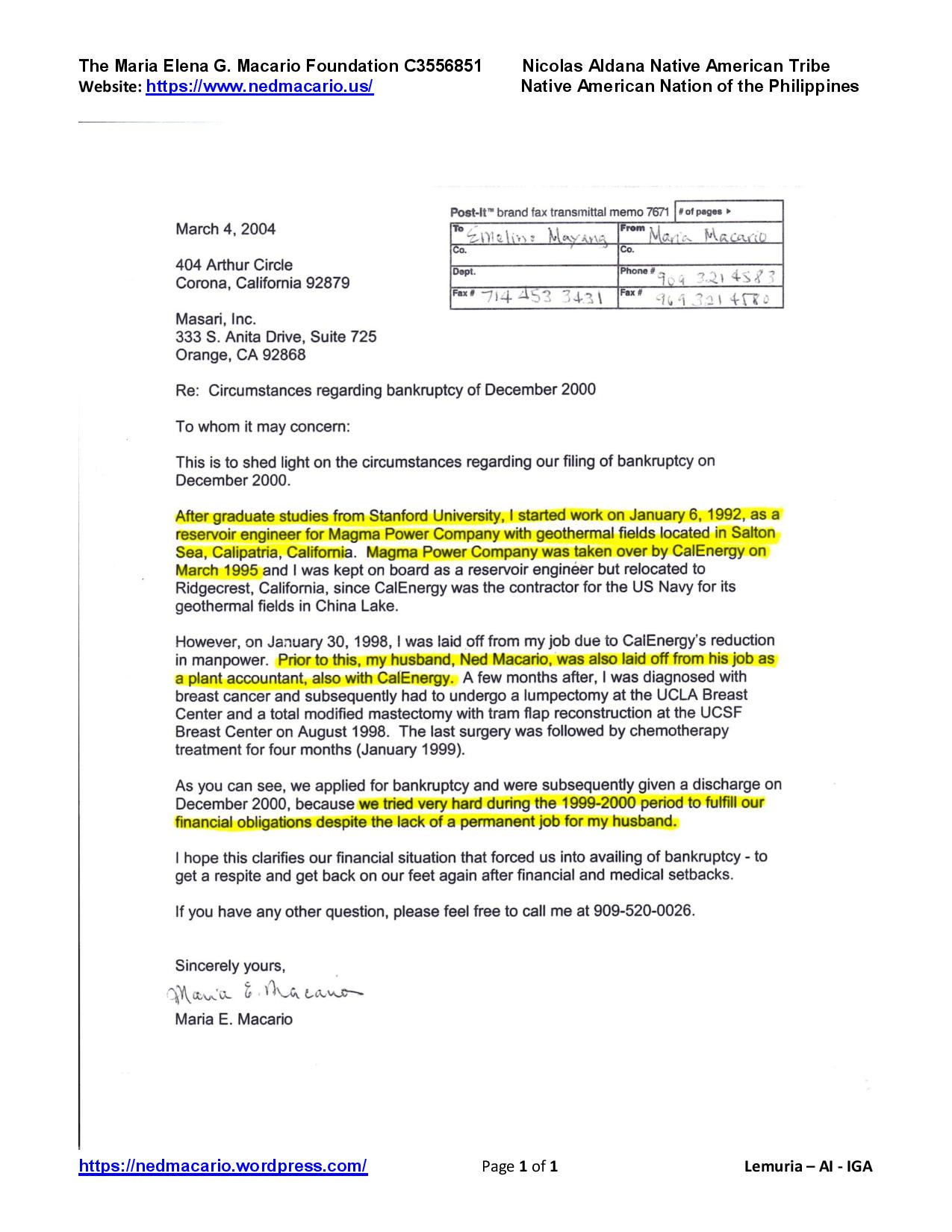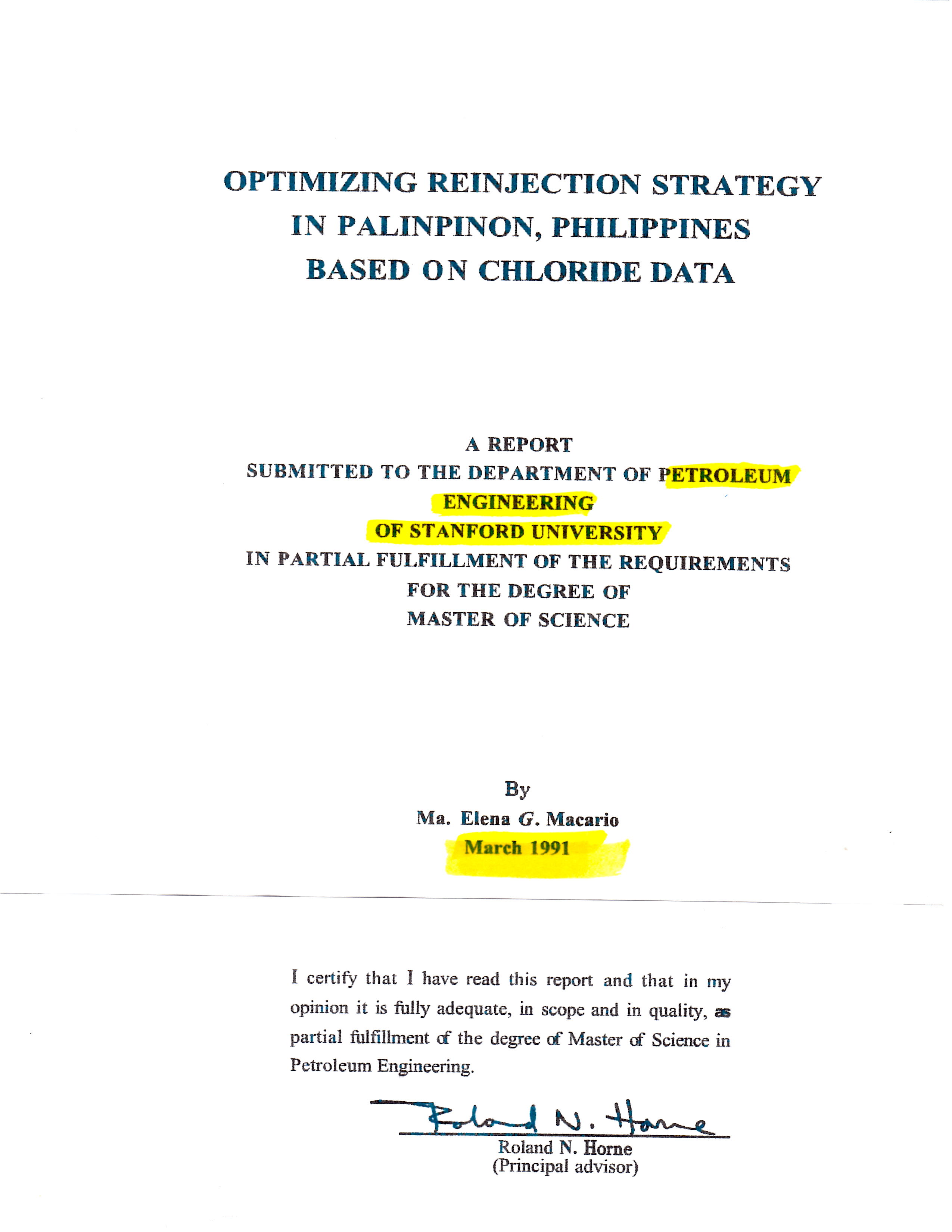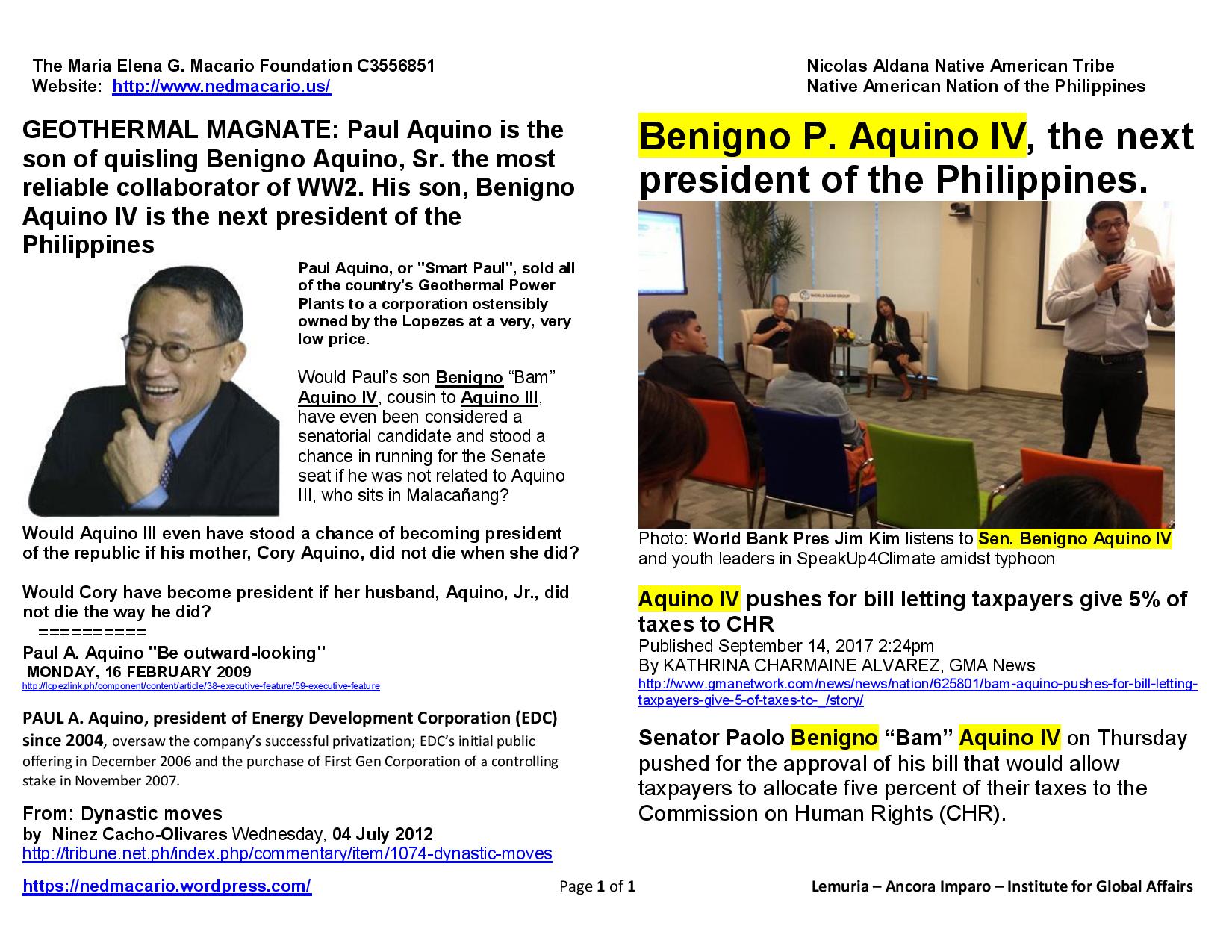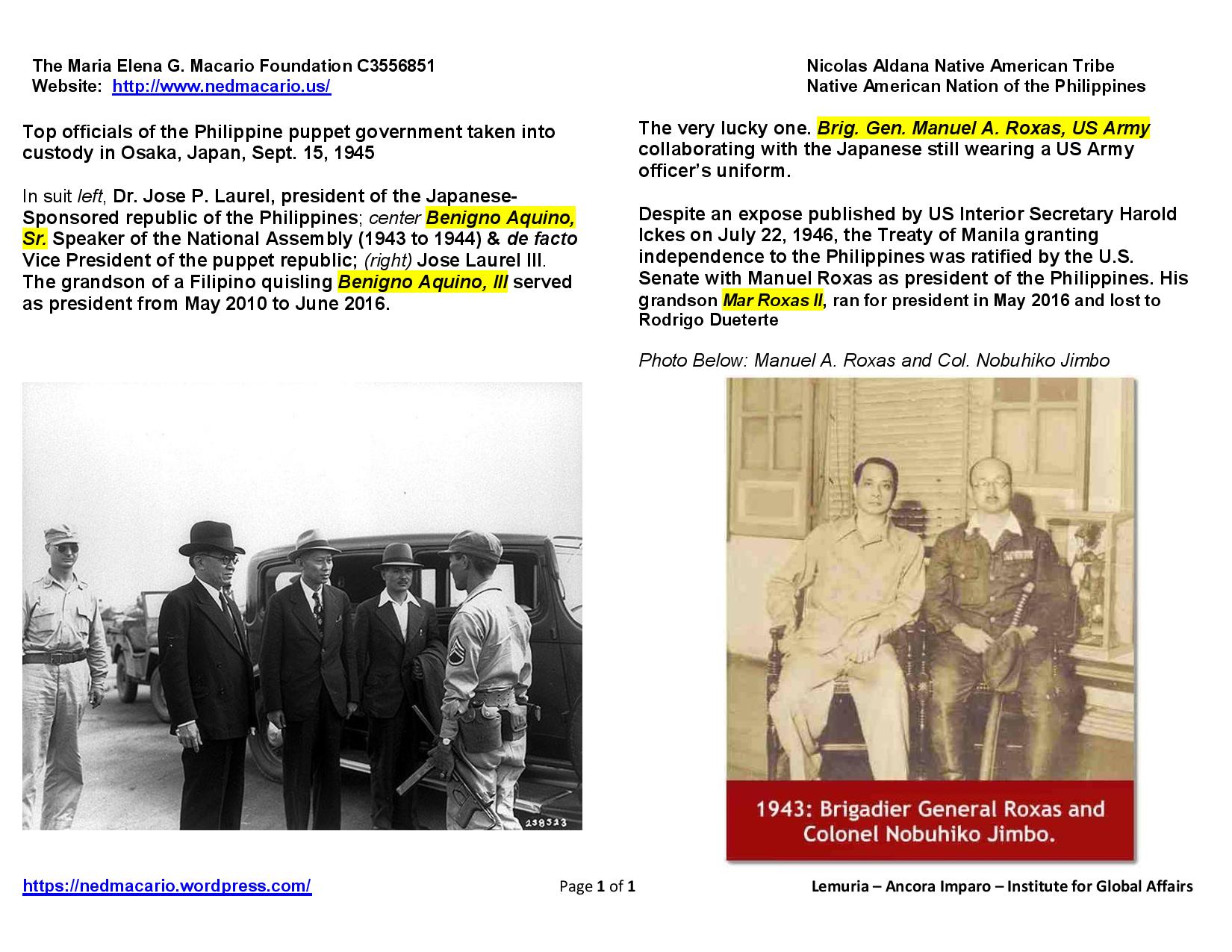This is a good book on Philippine History that should be a required reading in the U.S. and the Philippines.
Stanley Karnow’s book, “In Our Image: America’s Empire in the Philippines” (1989) won the Pulitzer Prize for History in 1990.
History will judge us all.
=============
“He (Karnow) shows that ***a succession of U.S. presidents and administrators coddled the archipelago’s 60 or so ruling families, perpetuating the feudal oligarchy that continues to this day^, and widening the gap between rich and poor.***”
(As usual, American journalists could never blame the U.S. Congress that pass the bill which the president, as chief executive, merely executes. – BM 12-09-17)
Excerpt from the editorial review by Publishers Weekly
Book: In Our Image: America’s Empire in the Philippines
Publisher: Random House (1989)
About the Author
Stanley Karnow won the Pulitzer Prize for this account of America’s imperial experience in the Philippines. In a swiftly paced, brilliantly vivid narrative, Karnow focuses on the relationship that has existed between the two nations since the United States acquired the country from Spain in 1898, examining how we have sought to remake the Philippines “in our image,” an experiment marked from the outset by blundering, ignorance, and mutual misunderstanding.
Editorial Reviews
From Publishers Weekly
Though Karnow claims that U.S. imperialism in its former colony, the Philippines, has been “uniquely benign” compared to European colonialism, the evidence set forth in this colorful, briskly readable history undercuts that prognosis. He shows that a succession of U.S. presidents and administrators coddled the archipelago’s 60 or so ruling families, perpetuating the feudal oligarchy that continues to this day, and widening the gap between rich and poor. Karnow, whose Vietnam: A History is a standard account of the American venture in Southeast Asia, draws intriguing parallels: the U.S.-Philippine war of 1898, much like the Vietnam experience, dehumanized U.S. troops, who looted and annihilated villages; ex-President Marcos, like South Vietnamese ruler Diem, presented Washington with the problem of how to deal with a client state that squandered its credibility. In Karnow’s assessment, the “new prosperity” under Corazon Aquino has not touched the Filipino countryside or slums. Photos. Author tour.
Copyright 1989 Reed Business Information, Inc. –This text refers to an out of print or unavailable edition of this title.
Book: In Our Image: America’s Empire in the Philippines
Publisher: Random House (1989)
https://www.amazon.com/In-Our-Image-Americas-Philippines/dp/0345328167
From Library Journal
Philippine history is often described as 300 years in a (Spanish) convent and 50 years in Hollywood. Karnow, who worked for 30 years as a journalist in Asia, narrates the careers of several individuals who influenced the Philippines. His treatment of the indecisiveness of President McKinley over the issue of empire and of the egotistical General MacArthur make the work a definite purchase for libraries.
Weaker in treatment is the post-independence period, where Karnow concentrates upon Marcos and Aquino, both of whom he knows. Particularly revealing is his account of the White House coming to terms with the Aquino election victory. Those who love swashbuckling history will enjoy this work.
– Donald Clay Johnson, Univ. of Minnesota Libs., Minneapolis
Copyright 1989 Reed Business Information, Inc. –This text refers to an out of print or unavailable edition of this title.
Review
“Stanley Karnow Has Written The Ultimate Book — brilliant, panoramic, engrossing — about American behavior overseas in the twentieth century.”
— The Boston Sunday Globe
“A Page-Turning Story and Authoritative History.”
— The New York Times
“Perhaps The Best Journalist Writing On Asian Affairs.”
— Newsweek
From the Publisher
“An impressively researched study of an adventure in empire that dared not speak its name.”–The New Republic
From the Back Cover
In a swiftly paced, brilliantly vivid narrative, Karnow focuses on the relationship that has existed between the two nations since the United States acquired the country from Spain in 1898, examing how we have sought to remake the Philippines ‘in our image, ‘ an experiment marked from the outset by blundering, ignorance, and mutual misunderstanding.
About the Author
Stanley Karnow won the Pulitzer Prize for this account of America’s imperial experience in the Philippines. In a swiftly paced, brilliantly vivid narrative, Karnow focuses on the relationship that has existed between the two nations since the United States acquired the country from Spain in 1898, examining how we have sought to remake the Philippines “in our image,” an experiment marked from the outset by blundering, ignorance, and mutual misunderstanding.
